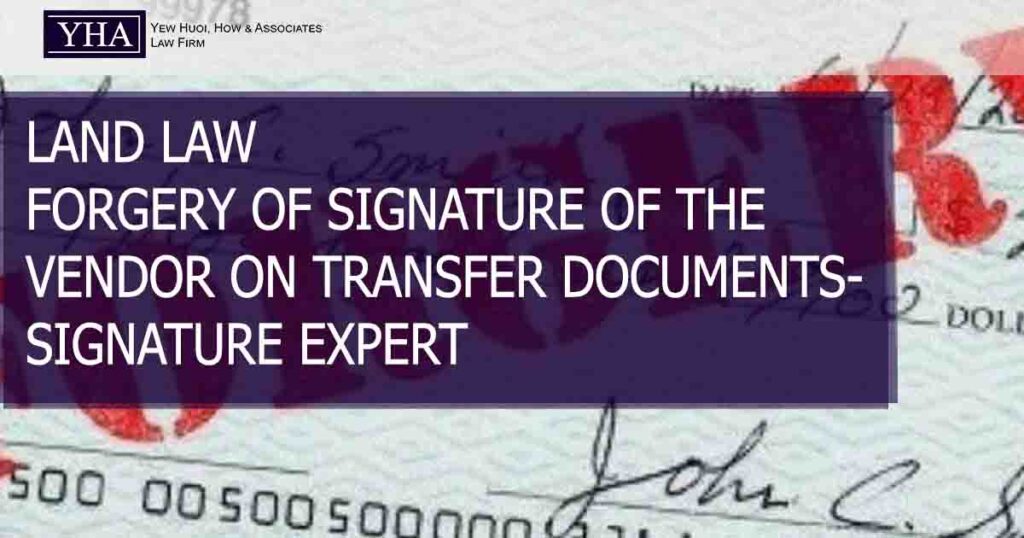I have just discovered through a land search that my property was no longer registered in my name. What can I do?
- You can file a claim to annul the registration of your property to the unknown third party under Section 340(2)(b) of the National Land Code.
- Section 340(2) of the National Land Code reads as follows:
“(1) The title or interest of any person or body for the time being registered as proprietor of any land, or in whose name any lease, charge or easement is for the time being registered, shall, subject to the following provisions of this section, be indefeasible.
(2) The title or interest of any such person or body shall not be indefeasible—
- in any case of fraud or misrepresentation to which the person or body, or any agent of the person or body, was a party or privy; or
- where registration was obtained by forgery, or by means of an insufficient or void instrument; or
- where the title or interest was unlawfully acquired by the person or body in the purported exercise of any power or authority conferred by any written law.”
What are the steps you should take before filing your claim:
STEP 1: Conduct a private land search with the Land Office for copies of all the transfer documents. Alternatively, you may file an application for discovery to obtain these documents
STEP 2: Send the transfer documents for signature expert’s or Jabatan Kimia’s verification. Signature Expert will require approximately 10 signatures made during contemporaneous period for comparison. Original documents are preferred.
STEP 3 : Signature expert will compare the signature using video spectra comparison comparator. VSC system is used to enlarge the image for comparison purpose. A comparison chart will be prepared. Every stroke, loop, diacritic and underscores will be marked to show handwriting characteristic. If original copy of the documents is given, the indentation or pressure point will be analysed. Signature expert will give his level of opinion based on the scale of 1 – 5. 1 being the highest level of similarity. 4 and 5 on the negative side i.e. not similar.
STEP 4 : If the expert report has 4 or 5 level of opinion, you would have generally made up a case for fraud and forgery.
Is signature expert all that I need to prove fraud and forgery?
- Yes. Generally, the victim of forgery would not have knowns or had any dealing with the perpetrator of fraud and forgery. It will be impossible for the victim to produce any other evidence to prove fraud and forgery. This is a rule based on common sense.
(Case in Point: Wong Ing Tong v Yap Piat Eng @ Yap Lien Eng & Anor and other appeals [2023] 2 MLJ 1)

